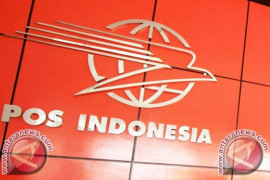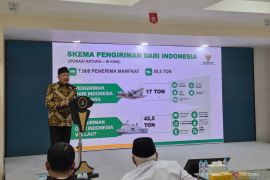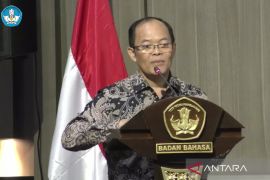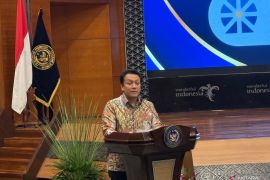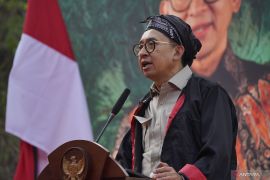"It is very often mentioned that the logistics system in Indonesia has many problems. Yet, it seems that the logistics business growth is higher than the national economic growth," Kadin Chairman Suryo Bambang Sulisto said here on Wednesday.
He noted that the two conflicting conditions, that the national logistics business was said to be ailing and at the same time was showing a high growth rate, had raised many questions.
"Logically, if the Indonesian logistics business is developed more efficiently, it will be able to grow larger," Suryo said.
Over the past several years, the world has been noticing Indonesias logistics and transportation business for its efficiency and effectiveness.
This has resulted in high logistics cost and affected the worlds perception of investing in Indonesia.
Kadin recorded that the logistics cost reached 24.6 percent of the gross national product (GNP), two-thirds of which came from transportation cost.
"Such a high logistics cost has raised concerns amid global economic integration and competition that demands efficiency in business," the Kadin chairman added.
Therefore, the road map for the countrys logistics development should be aimed at ensuring growth, following the road map and encouraging efficiency.
According to him, Indonesia already had a solution to improve the national logistics business as it was included in the blue print of the national logistic development system contained in Presidential Decision No. 26/2012 on the Blue Print of the National Logistics Development System.
Last week, Jakarta hosted an exhibition, "Indonesia Transport, Supply Chain and Logistics (ITSCL)," in preparation for the implementation of the ASEAN Economic Community (AEC) next year, and also as an effort to promote its logistics business.
Logistics Deputy of the Indonesian Chamber of Commerce and Industry (Kadin) Carmelia Hartono stated at a press conference that the exhibition was expected to boost the Indonesian logistics sectors preparations for the AEC implementation.
It is also expected to help explore challenges and opportunities in free trade era investments.
The exhibition, organized in cooperation with the government, various associations, and industries, was also expected to measure the capacity of the national logistics system.
Carmelia viewed that though its contribution to the gross domestic product was high at 25 percent, the national logistics business was still inefficient.
"This is a challenge we should face together because we are still concerned about our logistics readiness to face the AEC," she remarked.
On the occasion, Chairman of the Indonesian Logistics and Forwarders Association (Alfi) Yukki Nugrahawan Hanafi noted the countrys infrastructure conditions could hamper Indonesian companies in the coming AEC era.
"Therefore, it is important to introduce the ITSCL for reforming Indonesian logistics," Yukki added.
According to him, a number of national logistics companies were making preparations to penetrate the ASEAN region in the free trade era.
"We are now able to identify several companies that have high resources and can compete," he added.(*)
Editor: Heru Purwanto
Copyright © ANTARA 2014
